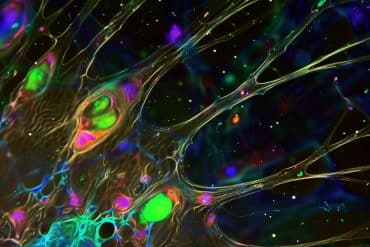Summary: Researchers identified a strong link between prenatal cannabis use disorder (CUD) and heightened risks of ADHD, ASD, and ID in children. The study analyzed over 222,000 mother-offspring pairs in Australia, revealing that children of mothers with prenatal CUD were almost twice as likely to develop these neurodevelopmental disorders.
Additionally, factors such as maternal smoking and pregnancy complications were found to exacerbate these risks further. This comprehensive study underscores the critical need for increased awareness and preventive measures to mitigate the adverse effects of prenatal cannabis exposure on offspring.
Key Facts:
- Offspring of mothers with prenatal CUD have up to a 98% increased risk of developing ADHD, ASD, and ID.
- The study found synergistic effects between prenatal CUD and maternal smoking, as well as other pregnancy complications, amplifying the risk of neurodevelopmental disorders.
- This research emphasizes the importance of awareness and counseling on the potential dangers of cannabis use during pregnancy to prevent long-term harm to children.
Source: European Psychiatric Association
A new study presented at the European Psychiatric Association Congress 2024 reveals a significant association between prenatal cannabis use disorder (CUD) and an increased risk of neurodevelopmental disorders in offspring, including attention deficit hyperactivity disorder (ADHD), autism spectrum disorder (ASD), and intellectual disability (ID).
Cannabis remains by far the most consumed illicit drug in Europe. Around 1.3% of adults in the European Union (3.7 million people) are estimated to be daily or almost daily users of cannabis.

Though males have a typically higher prevalence with regards to cannabis use, the latest statistics show that women are catching up with men in drug use, especially in the younger population.
There is increasing concern around the increase in cannabis use observed in younger females in the EU, especially among pregnant and breastfeeding women.
This concern is amplified by recent studies that have shown that the content of delta9-tetrahidrocannabinol (THC) is currently around 2-fold higher than it was 15–20 years ago, therefore increasing the risk of adverse effects for young women and their offspring following use when pregnant.
Additionally, it has been noted that the prevalence of ADHD and ASD in children and adolescents is on the rise with estimates of 5.3% to 5.9% worldwide and 4.6% for Europe for ADHD and 1 in 2000 for ASD across the EU.
This large-scale study, conducted by researchers at Curtin University in Australia, analysed data from over 222,000 mother-offspring pairs in New South Wales, Australia. The research team utilised an innovative approach, leveraging linked data from health registries, ensuring both the exposure (prenatal CUD) and outcomes (neurodevelopmental disorders) were confirmed using diagnostic tools based on the ICD-10-AM classification system.
Key findings from the study include:
- Children born to mothers with prenatal CUD displayed a 98% increased risk of ADHD, a 94% increased risk of ASD, and a 46% increased risk of ID compared to offspring without such exposure.
- The study also identified a significant interaction effect between prenatal CUD and maternal smoking. Children born to mothers with both prenatal CUD and a history of smoking during pregnancy exhibited an even higher risk of developing ADHD, ASD, and ID.
- Additionally, the research found synergistic effects between prenatal CUD and other pregnancy complications, such as low birth weight and premature birth, further increasing the risk of neurodevelopmental disorders in offspring.
These findings highlight the potential long-term consequences of cannabis use during pregnancy and emphasise the importance of preventive strategies.
Abay Woday Tadesse, lead researcher of the study at the Curtin School of Population Health commented on the findings, stating “The increased risk of neurodevelopmental disorders in children of mothers diagnosed with prenatal cannabis use that we have observed in this study underscores the critical needs for preventive measures, including preconception counselling, to mitigate the potential adverse outcomes.”
Professor Rosa Alati, Head of the Curtin School of Population Health and senior author of the study, added “These findings highlight the need to increase awareness of the risks associated with cannabis use during pregnancy among women planning to become pregnant.”
“This study is unique because it utilises linked data with confirmed diagnoses, providing a more robust picture of the potential risks associated with prenatal cannabis use.
“The results underscore the need for public health education campaigns and clinical interventions to raise awareness about the potential risks of cannabis use during pregnancy and to support women in making informed decisions regarding their health and the well-being of their children,” explains Dr Julian Beezhold, the Secretary General of the European Psychiatric Association.
About this CUD and Autism research news
Author: Sarah Carter
Source: European Psychiatric Association
Contact: Sarah Carter – European Psychiatric Association
Image: The image is credited to Neuroscience News
Original Research: The findings will be presented at the European Psychiatric Association Congress 2024






